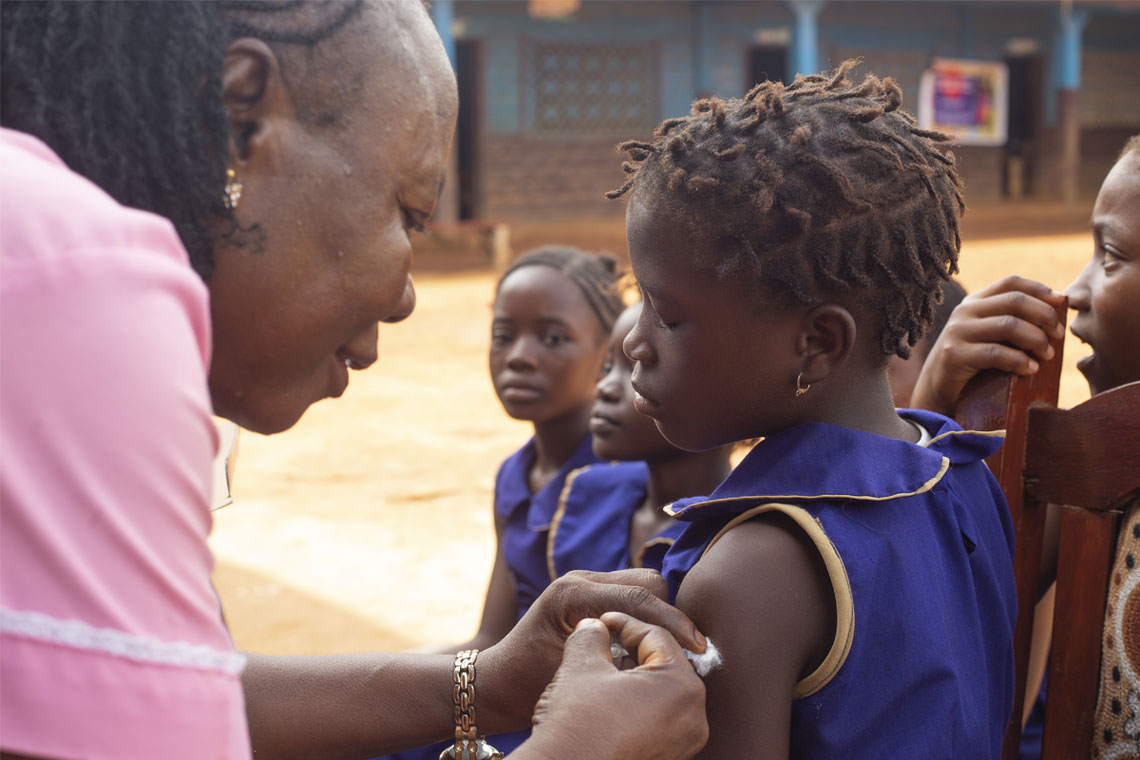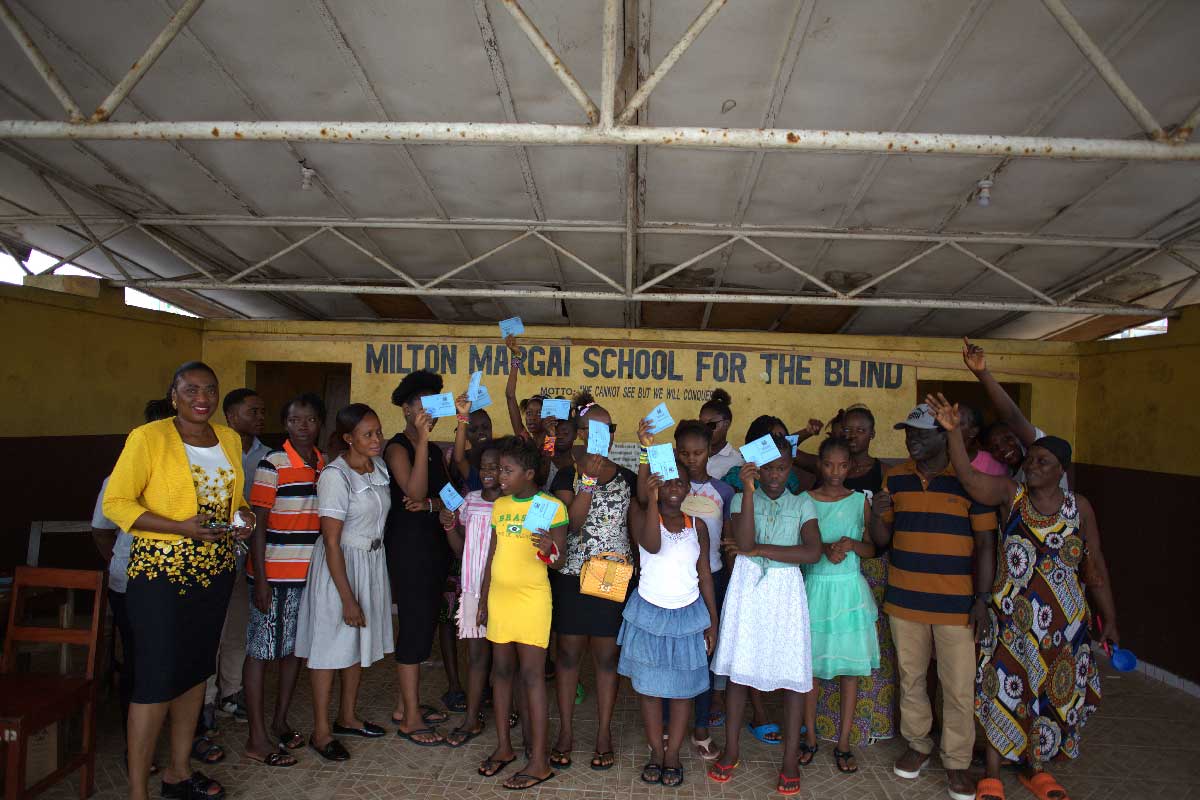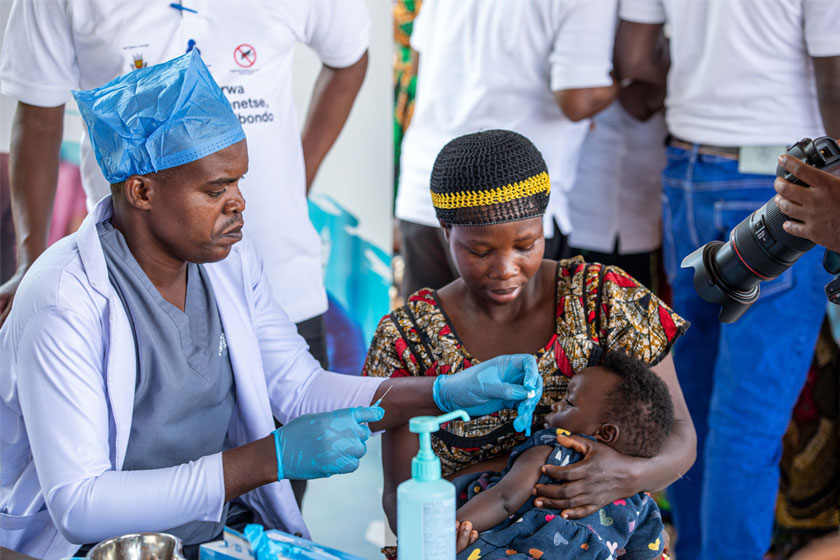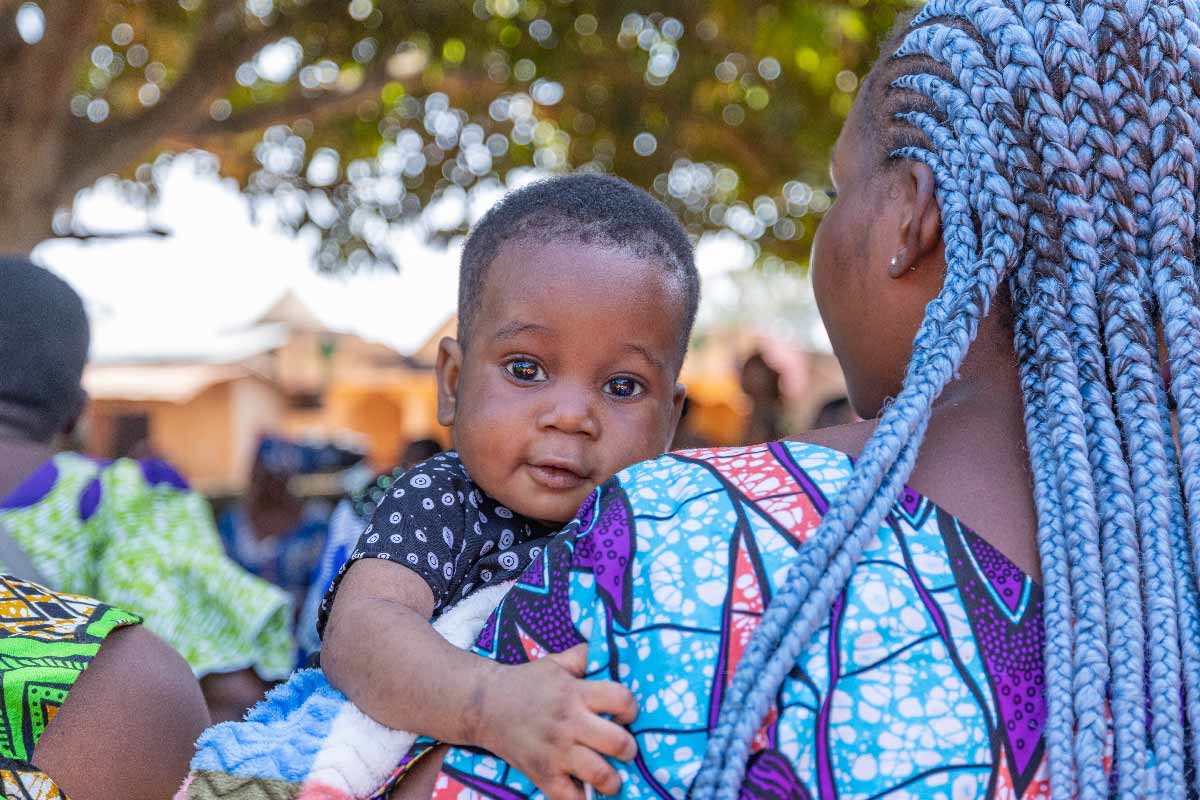Everything you need to know about the HPV vaccine
The human papillomavirus (HPV) is the leading cause of cervical cancer worldwide, causing hundreds of thousands of deaths every year. Here's everything you need to know about one of our best means of preventing it
- 26 July 2023
- 5 min read
- by Gavi Staff
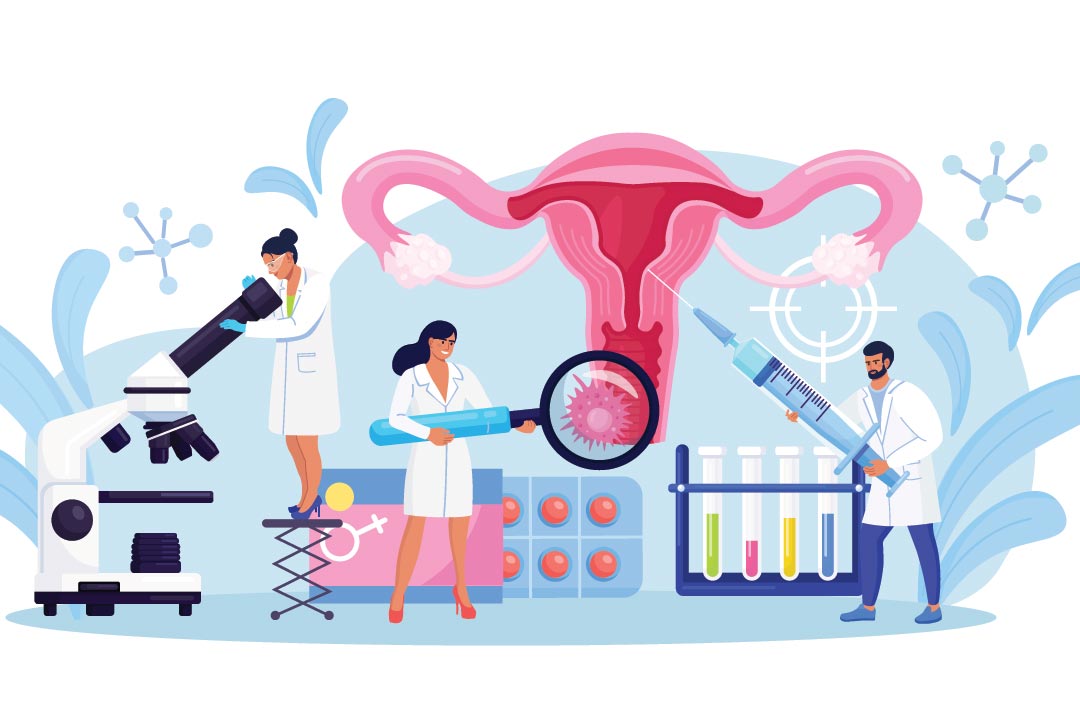
Cervical cancer is one of the leading killers of women. It claims the life of one woman every two minutes – in 2020 cervical cancer killed 342,000 women, 90% of whom lived in low- and middle-income countries.
The HPV vaccine is the most effective way of preventing cervical cancer. The World Health Organization recommends that the vaccine is given to girls between the age of nine and 14.
These figures are doubly tragic because the majority were caused by a common infection that is now preventable. A vaccine against this virus has been available for nearly two decades, yet coverage worldwide remains low. Coupled with programmes for screening and treatment of pre-cancer, it has the potential to finally eliminate cervical cancer worldwide.
What is HPV?
The human papillomavirus (HPV) is one of the most common STIs globally, and by age 45 years, around four in five men and women will have had at least one HPV infection. In 90% of people, the body naturally clears the virus; in some people, however, HPV can cause cancers including cervical cancer.
Who can get an HPV infection?
The virus can infect anyone who is sexually active. Sexual transmission is most common, but it can also be transmitted through skin-to-skin contact and from pregnant mothers to their babies.
What is the link between HPV and cancer?
Infection with HPV virus is associated with 90% of cervical cancers and significant proportions of other cancers including anal, vaginal, vulvar, penile, and throat cancers.
How does HPV cause cervical cancer?
HPV infects cells in the cervix (the lower part of the womb) and changes the way that they communicate with each other and the way they replicate; in some people the infected cells multiply in an uncontrolled manner, leading to cancer.
What is the best way to prevent cervical cancer?
The HPV vaccine is the most effective way of preventing cervical cancer. The vaccine works best if given before people are exposed to the virus. Therefore, the World Health Organization recommends that to prevent cervical cancer, the HPV vaccine should be given to girls between the age of nine and 14, when most are not yet sexually active.
How safe and effective is the HPV vaccine?
The vaccine is very safe and highly effective (97%) at stopping the HPV-16 and HPV-18 strains, which cause 70% of cervical cancer cases. Vaccines that include protection against HPV-6 and HPV-11 are almost 100% effective at stopping genital warts.
Can you tell if a person has HPV by looking at them?
No, you cannot tell if someone has HPV by looking at them. HPV infection can be asymptomatic, though people can transmit the virus even if they have no symptoms themselves. Except for genital warts, there are generally no visible signs of the virus.
Have you read?
Has the HPV vaccine been properly tested and how long has it been in use for?
The vaccine has gone through rigorous testing. It has now been given to more than 270 million people worldwide since 2006, and scientists continue to monitor vaccine roll-outs to see if there are any signs of serious side effects.
Does the HPV vaccine have any side effects?
Side effects of the HPV vaccine are mild and common to many vaccines, including: soreness, redness or swelling in the arm where the jab was given, fever, dizziness, nausea, headache, tiredness, muscle or joint pain.
How many doses of the HPV vaccine are needed?
As of late 2022, the World Health Organization recommends
- A one or two-dose schedule for girls aged 9–14 years.
- A one or two-dose schedule for girls and women aged 15–20 years.
- Two doses with a six-month interval for women older than 21 years.
Does the HPV vaccine protect against other cancers?
The vaccine also protects against anal, mouth, throat, head and throat cancers in men and women.
What are the symptoms of cervical cancer?
Symptoms include unusual vaginal bleeding or discharge, pain during sex or in the lower back, stomach or hips. However, not everyone has symptoms, and thus cervical cancer screening is incredibly important, as this can detect pre-cancerous cells. Pre-cancerous cells can be treated easily with an outpatient procedure, thereby preventing the development of cancer.
Can cervical cancer be treated?
As with other cancers, treatment could involve surgery, chemotherapy or radiotherapy, but in the low- and middle-income countries that carry the heaviest burden of cervical cancer, these treatments are often not available or hard to access. This makes screening and prevention especially important.
If I'm pregnant, would having an HPV infection affect my pregnancy?
As the virus could affect the pregnant mother and cause changes to cervical cells, pregnant people who test HPV positive should be screened for cervical cancer.
Who should get the HPV vaccine?
Recommendations vary by country, but most countries recommend that young girls of a specific age between 9–14 years, and women who haven't had the vaccine should get vaccinated.
Could boys get the HPV vaccine too?
Some countries are expanding vaccine roll-out to boys as well, especially as they are also at risk of contracting HPV and vaccinating them would prevent them transmitting it to girls. However, because of the link to cervical cancer, WHO has recommended prioritizing the vaccination of girls first.
Can the HPV vaccine give me HPV infection?
No, the vaccine is made of virus-like particles and is not infectious, therefore it cannot give you HPV.
